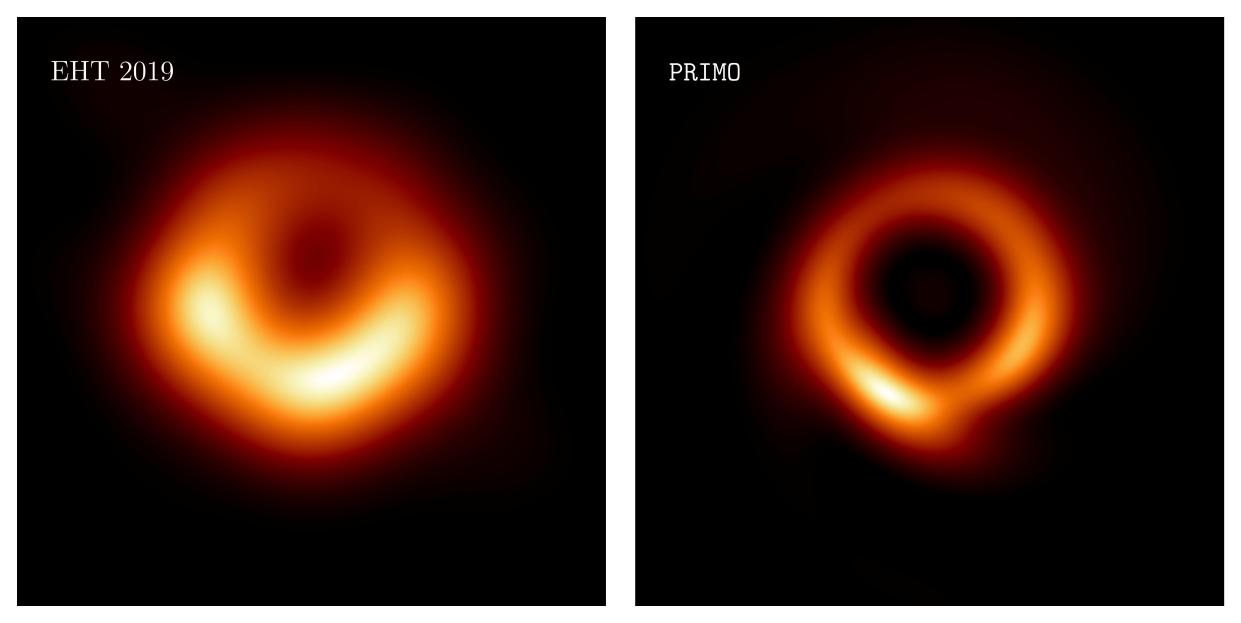Iconic first black hole picture is now sharper, thanks to new machine-learning tech

Humanity's first image of a black hole has gotten a makeover.
The iconic picture of the supermassive black hole at the center of Messier 87, a giant galaxy sitting 53 million light-years from Earth in the "nearby" Virgo cluster, was first released in 2019. The M87 black hole appeared as a flaming, fuzzy doughnut-like object emerging from a dark backdrop – but now we have a sharper look.
The new image, published Thursday in a Astrophysical Journal Letters study, gives us a refined look at the black hole – which now looks like a skinner, bright orange ring with a clearer dark center.
According to the study, the image was reconstructed using new machine-learning technology called PRIMO. Scientists relied on the same data that was used to create the 2019 image – originally obtained by an Event Horizon Telescope collaboration in 2017.
'We have seen what we thought was unseeable': First photo of a black hole revealed in 2019
2022: Astronomers capture first image of the huge black hole at the center of the Milky Way
In 2017, a network of radio telescopes around the world formed "an Earth-sized virtual telescope with the power and resolution capable of observing the 'shadow' of a black hole’s event horizon," the National Science Foundation's NOIRLab notes.
While this allowed scientists to see incredible details, gaps remained. PRIMO has helped fill in the missing pieces.
"Since we cannot study black holes up close, the detail in an image plays a critical role in our ability to understand its behavior," Lia Medeiros, an astrophysicist at the Institute for Advanced Study in New Jersey and lead author of Thursday's study, said in the NOIRLab press release.
"The width of the ring in the image is now smaller by about a factor of two, which will be a powerful constraint for our theoretical models and tests of gravity."
'Uranus has never looked better': James Webb Space Telescope captures new image of ice giant
The machine learning technique also brings the possibility of further work on other images of celestial objects, NOIRLab notes – including Sagittarius A*, the black hole at the center of our Milky Way galaxy. Astronomers revealed an image of Sagittarius A* in May 2022, which was also captured using EHT data.
"The 2019 image was just the beginning," Medeiros said. "If a picture is worth a thousand words, the data underlying that image have many more stories to tell. PRIMO will continue to be a critical tool in extracting such insights."
What's everyone talking about? Sign up for our trending newsletter to get the latest news of the day.
Contributing: Doyle Rice, USA TODAY. The Associated Press.
This article originally appeared on USA TODAY: First image of black hole is now clearer due to machine-learning tech
